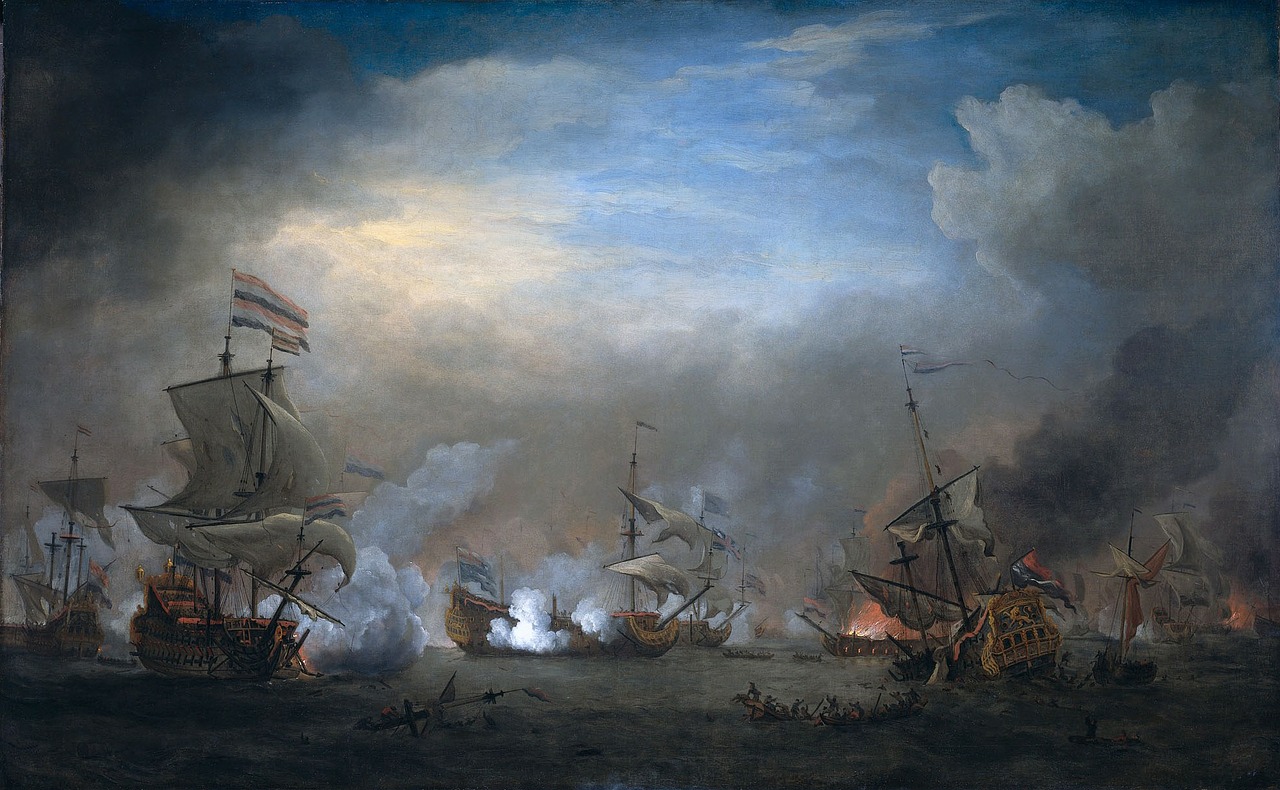Almost 16 years ago, I had read a poem. I was in my 5th Standard in school, and we had this beautiful piece of literature in our curriculum: Casabianca by Felicia Hemans.
Written in 1826, it is a short tragic poem narrating the bravery of a little Corsican boy of around ten, named Casabianca who refused to leave his ship – even when it had caught fire – because his father, the Captain had installed him at a sailor’s post on the deck. He waits on, calling to his old man repeatedly, asking whether he should abandon the vessel or stay on. But there comes no reply. He watches helplessly as the smouldering flames devour the ship and advance towards him, and yet nothing can make the little braveheart desert his father’s ship without permission. But where is his father? Unknown to the young lad, the poor Captain lies unconscious at the cabin below.
This exemplary work of tragedy is said to have been based on an actual incident that occurred in 1798 during the Battle of the Nile aboard the French ship Orient. The young son Giocante of commander Louis de Casabianca remained at his post and perished when the flames caused the magazine to explode. There are various versions of the story, but one thing is almost consistent in all the variants – there was one such brave boy who died onboard that day in the crossfire between the British and the French. Owing to its tragic element and stirring theme, the poem has been a subject of various interpretations over the years. Surprisingly, it has also been the topic for tasteless parodies in recent times.
I don’t know why suddenly after all these years, I had this bout of nostalgia. But I am glad. Because at that tender age, perhaps I was too young to understand the depth of the theme. Now that I have grown older, it makes me want to read it over and over again, and salute the poetess for her excellent understanding of the emotional turmoil of the protagonist, and lucid representation of the same. Those who have never had a chance to read this piece of gem, and also those who have read it long back and might have forgotten it over the years, here you go…
The boy stood on the burning deck,
Whence all but he had fled;
The flame that lit the battle’s wreck,
Shone round him o’er the dead.
Yet beautiful and bright he stood,
As born to rule the storm;
A creature of heroic blood,
A proud, though childlike form.
The flames rolled on – he would not go,
Without his father’s word;
That father, faint in death below,
His voice no longer heard.
He called aloud – ‘Say, father, say
If yet my task is done?’
He knew not that the chieftain lay
Unconscious of his son.
‘Speak, father!’ once again he cried,
‘If I may yet be gone!’
– And but the booming shots replied,
And fast the flames rolled on.
Upon his brow he felt their breath
And in his waving hair;
And look’d from that lone post of death,
In still yet brave despair.
And shouted but once more aloud,
‘My father! must I stay?’
While o’er him fast, through sail and shroud,
The wreathing fires made way.
They wrapped the ship in splendour wild,
They caught the flag on high,
And streamed above the gallant child,
Like banners in the sky.
There came a burst of thunder sound –
The boy – oh! where was he?
Ask of the winds that far around
With fragments strewed the sea!
With mast, and helm, and pennon fair,
That well had borne their part,
But the noblest thing which perished there,
Was that young faithful heart.
Footnotes:
Wikipedia

Howdy! This article couldn’t be written much better! Looking through
this article reminds me of my previous roommate! He
continually kept preaching about this. I’ll send this information to him.
Fairly certain he’ll have a good read. I appreciate you for sharing!